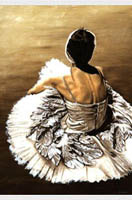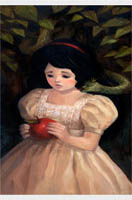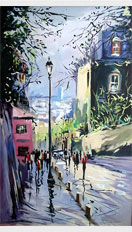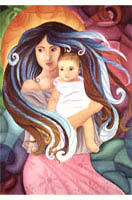- Oil Painting »
- Perspective
Perspective
Perspective is the choice of a single point of view from which to sense, categorize, measure or codify experience, typically for comparing with another. Viewpoint is another word for this principle - with a similarly broad interpretation. It may be visual and/ or mental, related to cognition.
Perspective as graphic representation of objects perceived by the eye denotes a technique of representing three-dimensional objects on a planar surface with the aim of retaining the illusion of three-dimensional space. This technique crystallises actual visual perception, for example, the parallel lines of a railway track are perceived by the eye as meeting at a distance point. Perspective can be drawn in an instinctive way (as in the visual fine arts such as painting, sketching, etching, etc.) as well as in a quantified, technical way (technical graphics using drafting instruments).
It is widely held that perspective as a means of graphic representation was discovered by Brunelleschi during the Renaissance period. However, it is likely that other civilisations knew the technique; for example, there is a particular painting in the Ajanta caves in India that employs a similar method.







